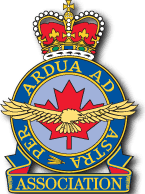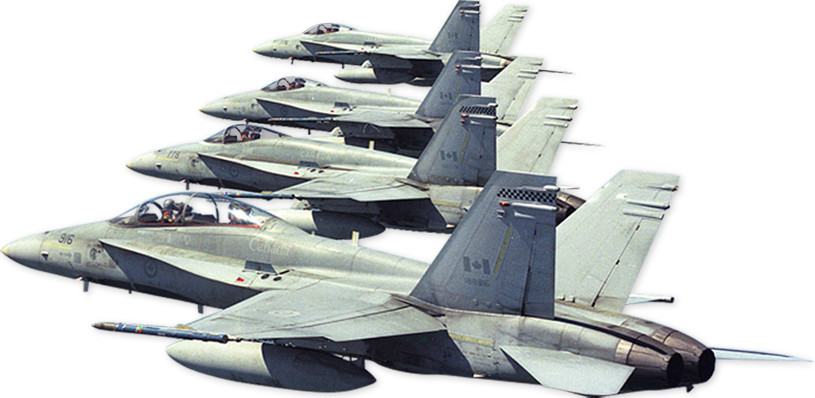From 1 April to 6 May 2023, the RCAF Association and the RCAF Association Trust Fund will hold elections for board positions for the 2023-2025 time-frame.
A “Call for Nominations” letter from the RCAF Association Chairman of the Board of Directors, Colonel (Ret’d) Terry Chester, can be downloaded here, at this link:
Call for Nominations!
The RCAF Association is an organisation of individuals from Canada and around the world fascinated by Canada’s air forces’ history, passionate about the well-being of the men and women who serve in today’s RCAF, and genuinely motivated to enhance community and country by focusing their attentions and energies on Canada’s youngest generation, especially those in the Royal Canadian Air Cadets.
The RCAF Association is governed by a Board of Directors and is currently looking for energetic and experienced professionals to assume positions on the board.
Please read the posting below in its entirety before submitting the application form, a cover letter and CV.
Roles & Responsibilities
The Board’s role is to:
assist the RCAF Association’s members fulfill its mission and vision
define and monitor the RCAF Association’s strategic plan
work with the Executive Director to find the resources needed for its mission and to finance its programs
provide financial oversight and accountability
maintain effective governance of the organization
ensure the legal and ethical integrity and accountability of the organization
General Expectations of Board members:
regularly participate in board meetings, committees and strategic planning sessions
commit to a leadership role in board, committee, fundraising and special events
stay informed about board and committee issues and prepare for meetings
get to know other board members and build collegial working relationships that contribute to consensus
be an active participant in the board evaluation and planning efforts
disclose all material facts and relationships where there may be a conflict of interest
The Nominating Committee is currently looking for candidates with the following skills and backgrounds:
previous Board experience, particularly in the not-for-profit sector
relationship building and fundraising
strategic planning and analysis
strong professional network
senior leadership experience
advocacy/communications
bilingual – English and French
Along with one or more of the following:
business and/or private sector experience
social enterprise and entrepreneurship
strong demonstrated commitment to volunteerism
outreach and/or public speaking experience
ability to work as a team member
respect for diversity
Candidates with other applicable experience or strengths are also encouraged to apply. The time commitment is a minimum of 5 hours per month, with overall commitment dependent on levels of activity.
The RCAF Association is dedicated to creating a Board of Directors that reflects the diversity of the community in which we live and serve. We encourage applications from all qualified candidates.
Commitment: On-going/ minimum 2 years. Board members are elected for a two-year term of service, and may stand up for re-election for a single two-year term before they are encouraged to step down after serving two two-year consecutive terms.
Police Check Required: No
Finger Print Required: No
Application Deadline: February 28, 2023
Application Instructions:
Please complete the candidate information form (below)
Please send a short cover letter clearly demonstrating how you meet the criteria outlined above, along with a resume to:
Contact Name: Executive Director Dean C. Black, CD
Phone Number: 613-612-7223 or e-mail director@airforce.ca
Serving on the National Executive Council (NEC) Board of Directors
The National Executive Council (NEC) is a committee of twelve non-executive directors whose primary responsibilities are fiduciary, as regards the integrity and well-being of the RCAF Association. For a more thorough understanding of what it means to be a fiduciary duty, please consult the RCAF Association Constitution and By-laws at this link here. No single elected NEC Board member has any executive power beyond the individual vote they cast in response to agenda items. The relevant power, instead, is vested in the National Executive Council (NEC) board of directors as a whole, and it is only through consensus-building processes that the power of the NEC Board of Directors translates into direction provided to the Executive Director. This Board of Directors is a policy-formulation board whose members have no operations management responsibilities other than to oversee the work of the Executive Director in the execution of her or his duties as may be assigned by the NEC Board of Directors. Together, board members consider the challenges presented to them and arrive at a consensus vis-a-vis the policy solutions needed to ensure success going forward. The Executive Director (Chief Executive Officer) is responsible for providing full support for the board members as a body corporate through the office of the Chairperson (Chief Elected Officer). There are nine elected directors, elected by all “Regular” members of the RCAF Association, and these nine elected directors are responsible for appointing three more directors to the Board. Five of the nine elected directors are actually nominated by Regular members from specific regions (Alberta, Prairies, Ontario, Quebec and Atlantic), but the ascendancy to the NEC of these five can only come about when all “Regular” members elect them to their roles on the NEC. This ascendancy is normally enacted by the remaining elected directors who act as the delegates duly appointed to that role by virtue of their office and/or in accordance with the wishes of the RCAF Association members in their regions. One other elected director is similarly nominated by all Regular members in her or his region (Pacific), and ascends to the NEC when all “Regular” members of the association duly elect him or her to the NEC as well. Three other elected non-executive directors may be self-nominated or nominated by any other Regular member and may come from any part of the “Regular” population of members, regardless of their affiliation either with a (local) Wing or with the RCAF Association Headquarters itself. Finally, once the nine elected non-executive directors have been duly elected their first duty is to elect from amongst themselves one of the nine to serve as Chairperson of the Board of Directors. Their second duty is to appoint up to three additional directors. Since the constitution identifies a role for the Honorary National President, the individual filling that office ascends thereto courtesy of an appointment extended by the nine elected directors. Similarly, since the constitution mandates a role for the Executive Director on all committees and sub-committees including Group Executive Councils, the Executive Director is extended an appointment to the NEC Board of Directors by the nine elected directors. This leaves one additional office available for appointment by the NEC Board of Directors.
The NEC Board of Directors meets twice annually, once in person if circumstances permit, and once on-line. The in-person meeting can run for an entire day; the on-line meeting is normally two hours long.
Some elected non-executive directorships come with additional duties that, when assumed, help the officer assuming those duties lead the strategic conversation with her or his fellow directors about the particular issue.
Some of these additional duties include: liaison with the Department of Veterans’ Affairs; liaison with the Air Cadet League; liaison with the Canadian Aeronautical Preservation Association; liaison with the Royal Canadian Legion; serving as Treasurer; serving as Deputy Chairman; serving on the Advocacy Committee; serving on the Honours & Awards committee; and, serving on the RCAF Association Membership Policy Committee.
The Executive Director is a certified-association-executive (CAE) certified by the Canadian Society of Association Executives (CSAE), and it is this certification and this affiliation with the CSAE that helps to protect the members of the NEC. The deliberations, discussions and decisions of the board of directors are properly insured; individual members are protected from liability challenges as long as those deliberations, discussions and decisions of the board are rendered by the entire board through deliberate consensus-seeking processes underscored by the utmost respect for individual participants and democratic values, and guided by the advice provided by the Executive Director. Any individual member acting unilaterally, or who acts in a manner inconsistent or opposed to the consensus reached by the board, is deemed to be operating outside the bounds of the RCAF Association’s insurance.
If you are interested in serving on the national executive council (NEC) Board of Directors, write to director@airforce.ca or call 1-866-351-2322 ext 221.
Serving on the RCAF Association Trust Fund Board of Trustees
The RCAF Association Trust Fund is the charitable operation of the RCAF Association, and because of its charitable status is must operate at arms’ length. Consequently, those designated as trustees cannot also be members on the national executive council. This is a violation of the Canada Revenue Agency Charities Act, and the Canada Not-for-Profit Corporations Act. Trustees on the RCAF Association Trust Fund board are needed to help determine how best to allocate non-designated donations, upon receipt of requests for funds, and to concur with any Co-operative Partnership Agreements the Secretary will draft up from time to time. These Agreements are often needed to specify the terms of various and sundry charitable projects to which individual members and non-members may wish to donate directly (designated donations). Therefore, the Trustees have a role in respect of designated donations and non-designated donations, and they are fully supported by a duly-qualified and completely volunteer staff team consisting of the Secretary and the Treasurer.








